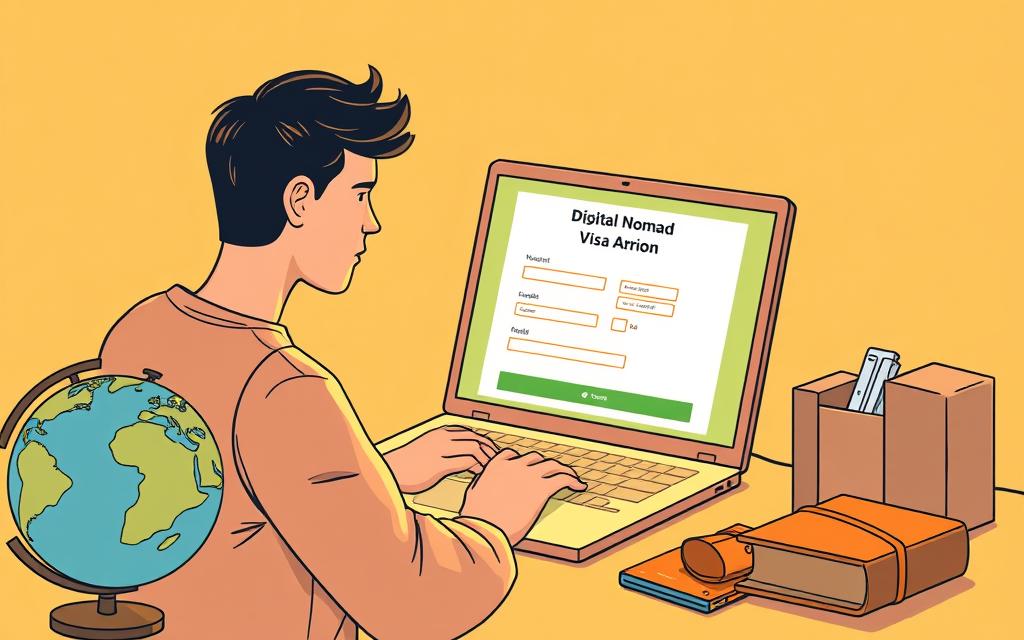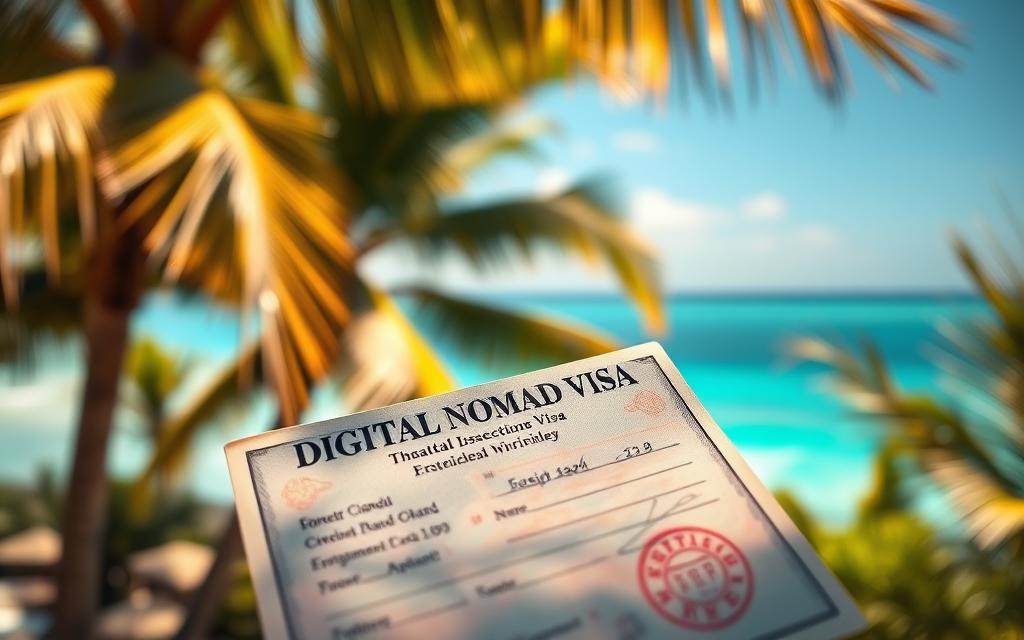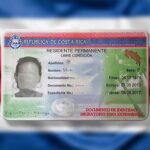Legal Work Restrictions for Digital Nomads in Costa Rica

Costa Rica has become a hotspot for digital nomads, with over 10,000 remote workers calling it home. This surge is largely due to the country's welcoming environment, fostered by the enactment of Law No.10008, also known as the "Digital Nomads Law."
As we explore the legal landscape for digital nomads in Costa Rica, it's essential to understand the visa application process and the implications of this law on remote workers. The law aims to attract international talent, offering a unique blend of work and leisure in a country known for its natural beauty and rich culture.
We'll delve into the specifics of the legal framework, including work restrictions and benefits, to provide a comprehensive guide for digital nomads considering Costa Rica as their next destination.
Understanding Costa Rica's Digital Nomad Landscape

Costa Rica has emerged as a haven for digital nomads, offering a unique blend of natural beauty and modern infrastructure. The country's appeal to remote workers is multifaceted, encompassing not just its picturesque landscapes but also its stable political environment and advanced telecommunications.
Why Costa Rica Appeals to Remote Workers
Costa Rica's attractiveness to digital nomads can be attributed to its modern infrastructure, which supports remote work. The country offers reliable internet connectivity, even in coastal and remote areas, allowing workers to enjoy diverse landscapes while staying productive.
The Rise of Digital Nomadism in Costa Rica
The growth of digital nomadism in Costa Rica is evident in the vibrant communities forming in areas like San José, Tamarindo, and Santa Teresa. As more remote workers choose Costa Rica, the country continues to adapt, offering a lifestyle that balances work and leisure.
What Are the Legal Work Restrictions for Digital Nomads in Costa Rica

As digital nomadism continues to grow in Costa Rica, understanding the legal framework governing remote work is crucial. The country has introduced specific legislation to attract and regulate digital nomads, providing a unique opportunity for remote workers to live and work in Costa Rica.
Overview of Law No.10008 (Digital Nomads Law)
Law No.10008, also known as the "Digital Nomads Law," establishes a special migratory subcategory called "Stay for Remote Worker and Service Provider." This law defines digital nomads as individuals who provide remunerated services remotely using computer, telecommunications, or analog tools for employers or clients outside Costa Rica. We must understand that this law is designed to attract international workers and service providers who wish to work from Costa Rica.
Key Restrictions and Limitations
While the law grants significant freedoms, there are key restrictions and limitations. Digital nomads are only permitted to work for foreign employers or clients; working for Costa Rican companies or clients is strictly prohibited without obtaining a separate work permit. Additionally, digital nomads cannot establish businesses in Costa Rica that serve the local market, and they must maintain their primary business activities and client relationships with entities outside Costa Rica. For more information on work permits for foreigners in Costa Rica, you can visit this resource.
Eligibility Requirements for the Digital Nomad Visa

To apply for the Costa Rica digital nomad visa, applicants must meet specific eligibility criteria. The requirements are designed to ensure that digital nomads can support themselves during their stay in Costa Rica.
Who Qualifies as a Digital Nomad
Anyone who works remotely or provides international services, regardless of nationality or country of origin, qualifies as a digital nomad. This includes remote workers, freelancers, and digital entrepreneurs who can perform their work using telecommunications technology.
Income Requirements ($3,000/$4,000 Monthly)
Applicants must demonstrate a stable monthly income of at least $3,000 for individual applicants or $4,000 for those traveling with family members. The income must come from sources outside Costa Rica, and applicants must provide evidence through employment contracts, client agreements, or bank statements. For more information on health insurance, which is also a requirement, you can visit https://www.jaroscr.com/can-digital-nomads-get-health-insurance-in-costa-rica/.
The Digital Nomad Visa Application Process

Applying for the Costa Rica digital nomad visa is a straightforward process that requires careful preparation. To ensure a smooth application process, it's essential to understand the required documents and steps involved.
Required Documents and Forms
The application process for the Costa Rica digital nomad visa involves several steps. You'll need to prepare several required documents, including a completed application form, proof of income (bank statements or employment contracts), a criminal background check from your home country, and proof of health insurance. The application form can be obtained through the Banco de Costa Rica or through Costa Rican embassies and consulates abroad.
Application Fees and Timeline
We advise applicants to budget for the $100 application fee that must be paid to the Costa Rican government. The timeline for processing typically ranges from 2-3 weeks, though this can vary depending on application volume and completeness of documentation. Your passport must be valid for the entire duration of your intended stay in Costa Rica.
Tax Benefits for Digital Nomads in Costa Rica

One of the most compelling reasons digital nomads choose Costa Rica is its favorable tax environment. We will explore the tax benefits that make Costa Rica an attractive destination for remote workers.
Income Tax Exemptions
Digital nomads in Costa Rica are exempt from paying income tax on earnings generated from foreign sources. This exemption represents significant savings compared to tourist visa holders who might face tax obligations if staying beyond certain thresholds. We can confirm that this tax exemption is a major draw for digital nomads, allowing them to keep more of their income earned outside Costa Rica.
Import Tax Exemptions for Work Equipment
In addition to income tax exemptions, digital nomads enjoy import tax exemptions on essential work equipment. This includes computers, mobile phones, tablets, cameras, and recording devices necessary for performing remote work. To claim the import tax exemption for specialized equipment, digital nomads can submit a request through the "Exonet" system. It's essential to note that this exemption applies only to equipment necessary for work, not to personal items unrelated to professional activities.
These tax benefits are specifically designed to make Costa Rica more competitive against other digital nomad destinations. While exempt from Costa Rican taxes, digital nomads remain subject to tax obligations in their home countries according to those jurisdictions' requirements. By understanding these benefits, digital nomads can make informed decisions about their work and residence in Costa Rica.
Duration and Renewal of the Digital Nomad Visa

Understanding the duration and renewal process of the digital nomad visa is crucial for planning your stay in Costa Rica. The Costa Rica digital nomad visa is designed to provide flexibility for remote workers.
Initial One-Year Stay Period
The Costa Rica digital nomad visa initially grants holders a one-year stay period, significantly longer than the standard 90-day tourist visa. It's essential to note that this one-year period begins from the date of approval, not from the date of entry into Costa Rica.
Extension Options for an Additional Year
After the initial year, visa holders can apply for a one-time extension for an additional year, providing a potential total stay of two years under this visa category. To qualify, applicants must have physically resided in Costa Rica for at least 180 days during the first year.
We advise digital nomads to apply for the extension at least 30 days before the expiration of the initial visa period to avoid gaps in legal status. During both the initial period and extension, digital nomads can freely exit and re-enter Costa Rica without losing their visa status.
Working Legally as a Digital Nomad in Costa Rica
With its welcoming environment, Costa Rica has become a hotspot for digital nomads, yet it's essential to comprehend the legal boundaries of working remotely in the country. The Costa Rica digital nomad visa creates a clear legal framework for remote work activities that are permitted while staying in the country.
Permitted Work Activities
Digital nomads are legally allowed to continue working for foreign employers, clients, or their own overseas businesses while in Costa Rica. Permitted activities include software development, content creation, online consulting, digital marketing, and virtual teaching, as long as these services are for clients or employers outside Costa Rica.
Prohibited Work Activities
It's crucial to understand that digital nomads are strictly prohibited from providing services to Costa Rican businesses or individuals without obtaining a separate work permit. Activities that require professional licensing in Costa Rica, such as practicing medicine, law, or engineering for local clients, are also not allowed under the digital nomad visa.
Bringing Family Members as a Digital Nomad
You can enjoy Costa Rica with your family by your side, thanks to the digital nomad visa provisions. The Costa Rica digital nomad visa allows remote workers to bring their immediate family members, including spouses and dependent children, to stay with them in the country. For more information on the application process, you can visit this link.
Additional Requirements for Dependents
To bring your family, you'll need to meet additional requirements. The income requirement increases to $4,000 per month when including family members. You will need to provide proof of family relationship, such as marriage or birth certificates translated into Spanish, and valid health insurance for all dependents.
Rights and Restrictions for Family Members
Dependent family members receive the same visa duration as the primary applicant and can qualify for a one-year extension. While they can live in Costa Rica and attend local schools, they are not permitted to work for Costa Rican employers without separate work authorization. Spouses who are also digital nomads must apply for their own visa if they wish to work remotely.
Healthcare and Insurance Requirements

To successfully apply for a digital nomad visa in Costa Rica, it's essential to comprehend the healthcare and insurance requirements. All applicants must provide proof of comprehensive health insurance that covers them for the entire duration of their stay.
Mandatory Insurance Coverage
The insurance policy must be valid in Costa Rica and can be obtained from either an international provider recognized by Costa Rican authorities or the National Insurance Institute (INS). We recommend obtaining insurance that meets or exceeds the minimum coverage requirements, including emergency medical care, hospitalization, and repatriation services.
Healthcare Options for Digital Nomads
Costa Rica offers excellent healthcare facilities, particularly in urban areas, with both public and private options available. Private healthcare is significantly more affordable than in the United States while maintaining high standards of care and English-speaking medical professionals. Many digital nomads opt for international health insurance plans that provide coverage not only in Costa Rica but also in neighboring countries they might visit.
Transitioning to Permanent Residency
As digital nomads settle into life in Costa Rica, many begin to consider their long-term options. The digital nomad visa provides a temporary solution, but for those who wish to stay longer, exploring permanent residency is a natural next step.
Pathways After Digital Nomad Visa Expiration
After the digital nomad visa expires, individuals can explore other residency options. Several pathways to permanent residency are available, including investment residency, rentista residency, and pensionado residency.
Requirements for Permanent Residency
To qualify for permanent residency, applicants must demonstrate financial solvency, maintain a clean criminal record, and establish ties to Costa Rica. Typically, after three years of temporary residency, foreign nationals can apply for permanent residency status, enjoying benefits like the ability to work for Costa Rican employers and a path to citizenship.
Conclusion: Embracing the Digital Nomad Lifestyle in Costa Rica
Costa Rica emerges as a top destination for digital nomads seeking a blend of work and leisure. The digital nomad visa program offers legal certainty, tax benefits, and quality of life. For personalized assistance, contact Jaros CR at info@jaroscr.com or +(506)7182-8969.


